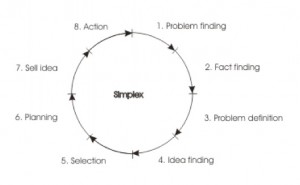
In this ever-changing economic climate, we find ourselves bombarded with issue after issue and challenge after challenge. Each day’s opportunities come at us with greater speed, and demand our attention and after all, those around us expect solutions now!
Many of us are so used to continually solving problems; during the course of the day, we solve one problem after another, face each new and pressing issue head on, find the fix, and move forward. We feel like we’re doing our jobs and earning our keep because we solved all those important problems today.
But take a moment to consider these questions: Is solving a problem and moving on to the next really giving each problem its due? Is a quick “fix” really the best solution? Are we establishing a negative pattern with quick fixes that overlook the root of the issue? Are we hesitant to take the time to really solve the problem in the best possible way? Is it conceivable that the optimal solution would evoke new processes or procedures and prevent the problem from reoccurring?
Are we crisis-driven instead of solutions-driven?
Exploring the many facets of the problem and digging deeper on multiple levels allows us to determine how we can actually build a better mouse trap. The “fight or flight” reflex makes us attack a problem (based on action), as opposed to exploring a problem (based on thought and research).
With fast solutions, the fix is often easy and quick; but in many cases, after considerable thought or investigation, better quality solutions came to light later, after time had been devoted to the process. “That was easy” may be a clue to the fact that we simply didn’t work hard enough. A slower, more intensive approach can make for a stronger solution.
 This graphic (click on the image for larger version) shows the Simplex problem-solving model, created by Min Basadur, author of The Power of Innovation. The eight-step process follows a circular pattern, within which current problems are solved and new problems are identified on an ongoing basis. (See more here.)
This graphic (click on the image for larger version) shows the Simplex problem-solving model, created by Min Basadur, author of The Power of Innovation. The eight-step process follows a circular pattern, within which current problems are solved and new problems are identified on an ongoing basis. (See more here.)
A fundamental understanding of the problem is essential to the development of a superior solution. Never take a problem at face value. Extensive probing and a thorough line of questioning will assist in determining the time and resources required.
And in determining that solution, take a helicopter ride to the ceiling and get the overall perspective, the view from the wide angle lens combined with the view from the magnifying glass is essential. Explore hidden causes of problems. Often times they are just below the surface, but a critical aspect of the issue.
The best solutions will not only enhance your business but they will contribute to your sense of participation and well-being. You’ll be seen as a master of what’s not obvious and will have distinguished yourself by taking the dificult route that reaps the real rewards in this challenging business climate. The best solution will really make a difference.
Jo Staffelbach Heinz is President and CEO of Dallas-based STAFFELBACH. Contact her at [email protected].





